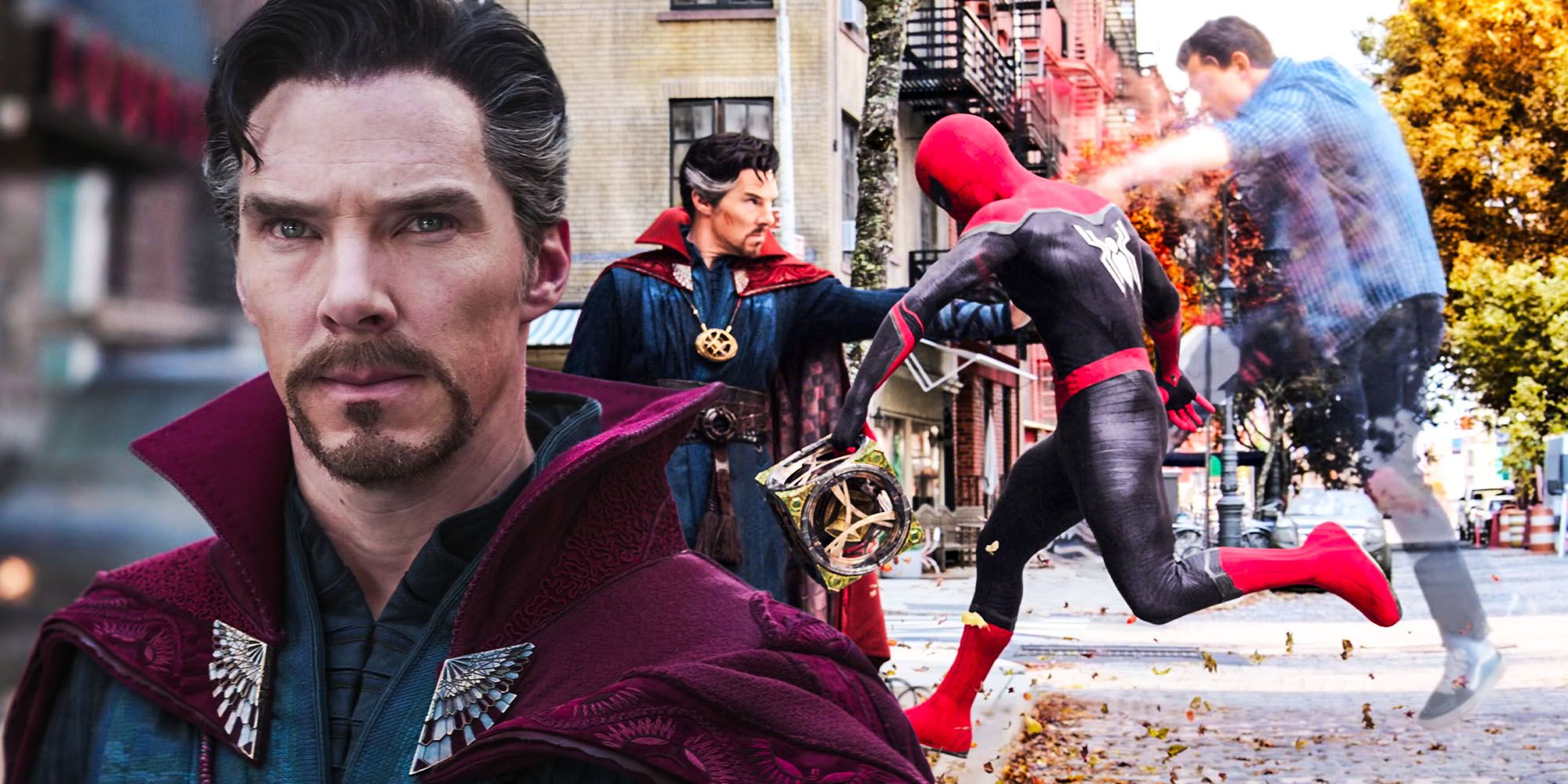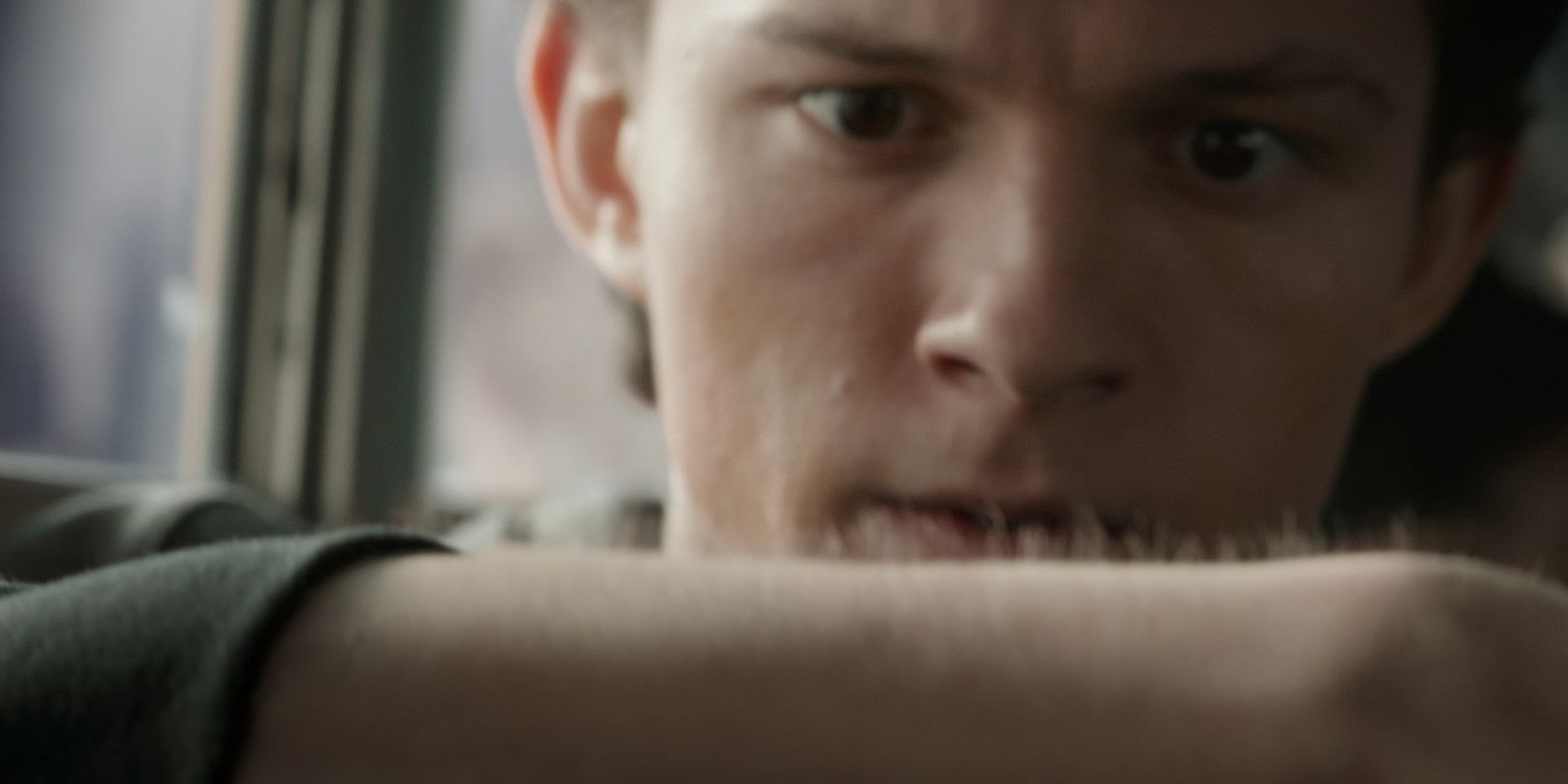Warning! Spoilers ahead for Spider-Man: No Way Home.
Doctor Strange's (Benedict Cumberbatch) astral spell against Spider-Man (Tom Holland) in Spider-Man: No Way Home seemed so weak — why? Continuing the trend of partnering Peter Parker with an older MCU hero in his solo films, the latest Marvel Studios and Sony collaboration project saw him teaming up with Stephen Strange. But while they're supposed to be on the same side, Doctor Strange and Spider-Man had fundamental disagreements on how to approach their collective issue, resulting in a brief but very creative fight.
Picking up right after the cliffhanger ending of Spider-Man: Far From Home, Spider-Man: No Way Home saw Peter dealing with the ramifications of being outed as Spider-Man. To make matters worse, he was also being framed for the death of Mysterio (Jake Gyllenhaal), who was still being largely treated as a hero despite his lies. Desperate for help, the young hero reached out to Doctor Strange for some assistance. But while the MCU sorcerer was eager to help him, his tampered spell not only did not solve Peter's problem but also exposed Earth to interdimensional villains.
With bad guys from Sam Raimi's Spider-Man trilogy and Marc Webb's films such as Doc Ock (Alfred Molina), Green Goblin (Willem Dafoe), and Electro (Jamie Foxx) threatening the Sacred Timeline, Doctor Strange's main goal was to send them back to their respective universes. But after learning that it would result in all of them dying, Peter decided to find an alternate way to save them before they went home. This was where their conflict started, resulting in a short battle. Fed up with the wall-crawler's antics, Doctor Strange pushed Peter's astral form from his body, but for some reason, Spider-Man was still able to physically move. This was surprising to the sorcerer as someone who was also subjected to the same incantation by the Ancient One (Tilda Swinton) in the first Doctor Strange film. Does this mean that his astral spell was much weaker? Not necessarily. The reason why Peter was able to physically maneuver his body even as his astral form was separated from it was most likely because of his Spider-Sense.
For context, Spider-Sense is the unique ability of Spider-Man to sense and subconsciously respond to dangerous situations. Given his heightened reflexes, he's incredibly reactive during fights. In this particular instance in Spider-Man: No Way Home, Peter's body knew that Doctor Strange shouldn't get the mystical box that would've sent the villains back to their respective worlds. So while the young hero's subconscious was removed from his physical body, his Spider-Sense automatically knew that he needed to keep the mystical object away from the sorcerer resulting in his body moving on its own. This wasn't the first time Peter's Spider-Sense exhibited something out of its typical capabilities, like simply sensing danger. In Avengers: Infinity War, he was able to hold off getting dusted the longest because of his Spider-Sense.
The end of Spider-Man: No Way Home left the wall-crawler at his most vulnerable state. Without anyone remembering who he was, he essentially didn't have any kind of support. But, it also set up a more interesting future for him, especially with Spider-Man 4 reportedly in active development with Marvel Studios and Sony. With no one to rely on but himself, perhaps fans can also see more of him relying more on his own abilities, including his Spider-Sense.







